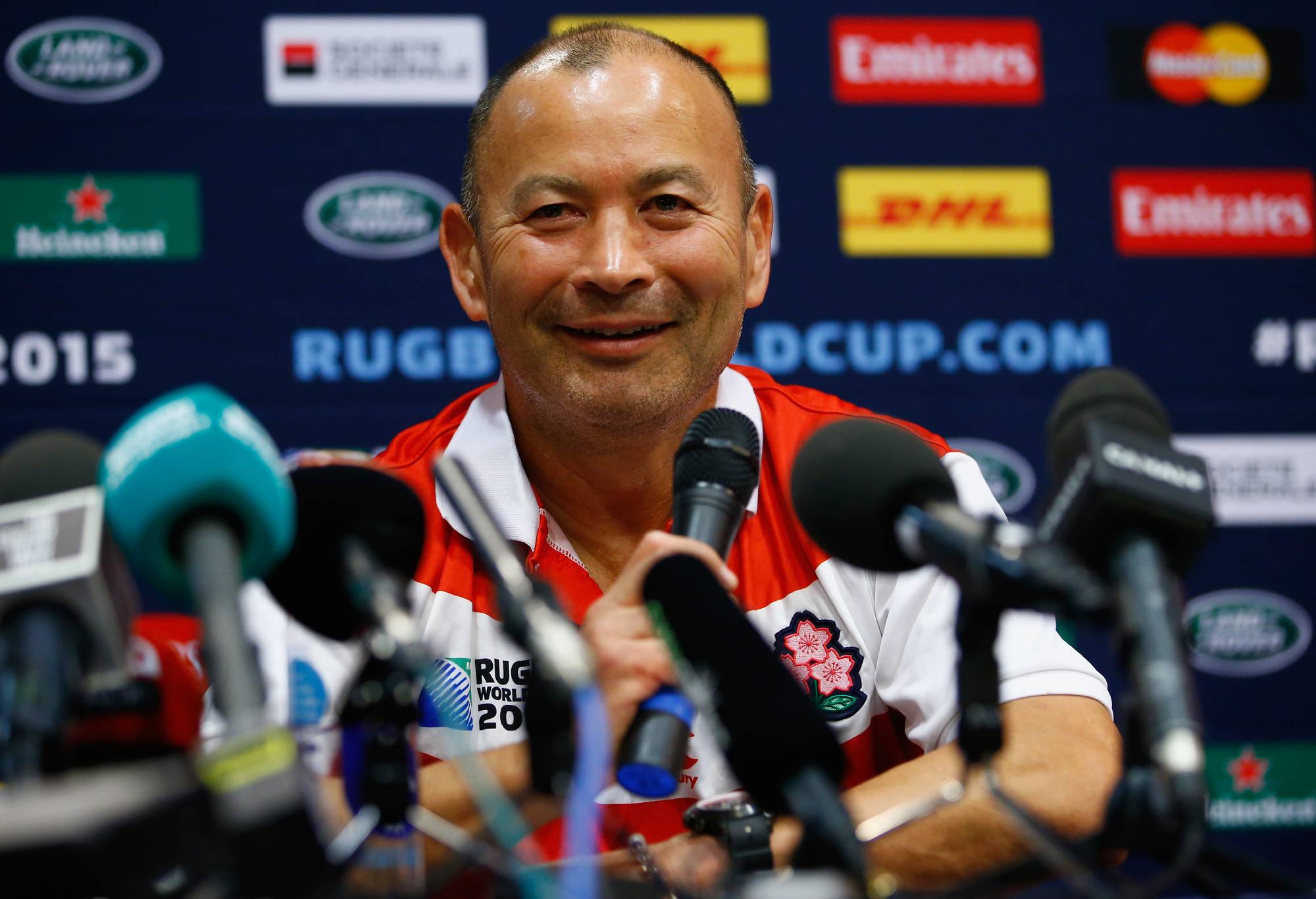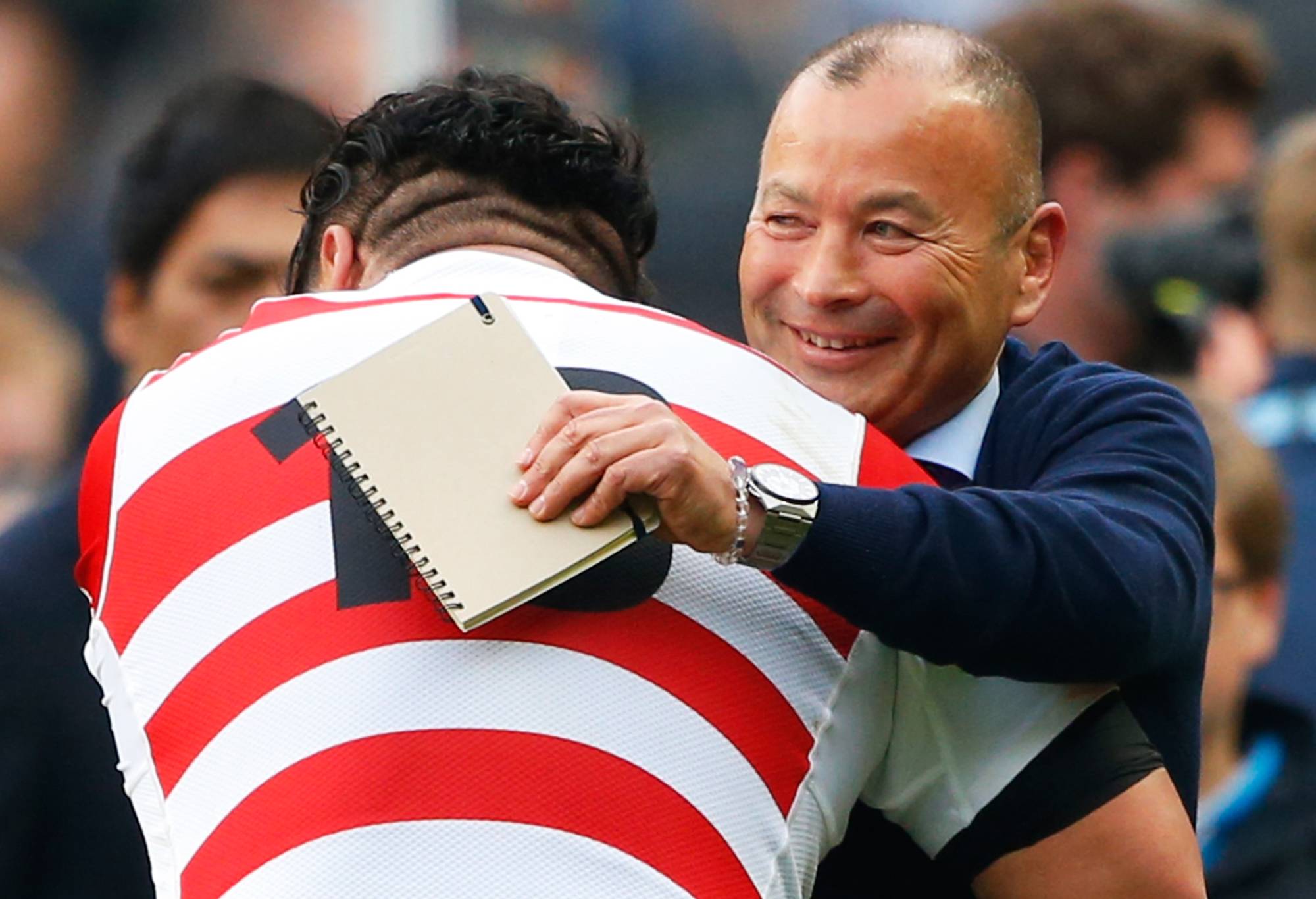TOKYO: Natto – or fermented soybeans – is the Japanese equivalent of Vegemite in that people generally love it or hate it.
Given events of the last few months, the two foods are a good way of starting off a piece on how people currently feel about Eddie Jones, who is expected to be confirmed as the new head coach of the Brave Blossoms on Wednesday evening following a board meeting of the Japan Rugby Football Union.
Jones has always been an enigma – a man and coach that you either get along with or don’t. And that continues to be the case not just in England and Australia, whose national teams he has left in short succession under clouds of vitriol, but also in Japan where he is regarded as either the homecoming hero or yesterday’s man.
So is the Jones saga a simple tale of lies and betrayal that many have portrayed? And why is he returning to a job he held from 2012-15?
Back in December 2022, Jones told this writer during a face-to-face interview in Tokyo shortly after being sacked by England that he had loved his time in Japan “and if Japan were interested, I would be interested. But the interest has to come from the other side.”
He went on to say “there’s a couple of offers floating around, so I will make sure I do due diligence for the next job I take as it will probably be the last job I do and I want to make sure it is a good one.”
As it turned out, it appeared on the surface there was no interest from Japan (perhaps because Jamie Joseph had still not announced his plans post-Rugby World Cup 2023) and Jones’ next job ended up being with the Wallabies.
“Like everything in life, there is a start and an end, and I want to close that cycle, as it were. I started professional coaching in Japan and Australia, and probably one of those two places would be a good place to finish.”

Eddie Jones in faces the media during a Japan Press Conference at the Hilton Hotel on September 21, 2015 in Brighton, England. (Photo by Mike Hewitt/Getty Images)
But as we have since found out, Australia is not where he will finish his career, despite multiple comments that he was committed to the cause and wanted to see out his five-year contract.
So, from a purely Japanese point of view, is Jones’ return a good or bad thing for the Brave Blossoms and rugby in general in the Land of the Rising Sun?
First of all though, let me make it very, very clear – no one has come out of this looking good.
Why did the JRFU pay for a headhunter, once Joseph confirmed in July he was leaving after the World Cup, if, as has been reported here by Sponichi, a “private” deal was already in place between JRFU president Masato Tsuchida and Jones ensuring the latter would succeed the former All Black?
And don’t get me going on why it even needed expensive outside help to come up with the two names it did for the shortlist of candidates – Jones who led Japan to arguably their greatest win and Frans Ludeke who over the past eight years has taken Kubota Spears from easy beats to Japan Rugby League One champions.
Those in the anti-Jones camp will say his appointment stinks of nepotism. And they will quite rightly point out the constant denials from the coach and the silence from the JRFU.
They see it as Tsuchida (who was head coach of Suntory when Jones started out his coaching career) bringing back his long-time friend in a secret deal in the hope the JRFU can relive the glory days of 2015, when Japan famously beat the Springboks.
But to be fair though, there is a bit more to it than that.
During his first spell in Japan, Jones (unlike it has to be said Joseph) spent a great deal of time watching high school and university rugby and picking the likes of Takuya Yamasawa and Yusuke Kajimura to play and train with the full national squad while they were still in their teens.

Eddie Jones celebrates with Hiroshi Yamashita of Japan after the 2015 Rugby World Cup Pool B match between Samoa and Japan. (Photo by Stu Forster/Getty Images)
Jones was very vocal that Japan needed to improve the way the game is run particularly with regards high performance, and it is surely no coincidence that Chris Webb recently arrived in Japan.
The former Wallabies manager, and long-time associate of Jones, was a key figure, alongside CEO Yuji Watase, in the emergence of the Sunwolves. And like Jones, the pair had constant run-ins with the JRFU over how best to prepare players for Test match rugby.
Tsuchida has made it clear he wants a change from the past, saying “I want the new head coach to oversee all levels, from high school, under 20s to the top level. I want the person to do it consistently, including university rugby.”
As such, Jones (and Webb if he signs on) would likely have free rein to make some significant changes to the way young Japanese players are currently “forced” to play the game. In particular, fast-tracking the top 18 to 22 year olds so they can play League One rugby rather than spending four years simply playing against fellow students.
It may also lead to the men’s sevens programme finally being taken seriously, in terms of player release and availability.
It is also clear that Jones knows about the culture here and how to get the best out of his players.
While there are stories that there was almost a player rebellion back in 2015 due to the harsh training regime, it is interesting to note that one of the players behind it responded immediately when asked who he thought would be the new coach when quizzed in October at this year’s World Cup in France.
“Eddie. He knows all there is to know about Japanese rugby,” said Fumiaki Tanaka.
And yet, just as with natto and Vegemite, there are those who think the man whose image adorned a billboard overlooking Ginza Crossing back in the winter of 2015-16, is anything but good.
“He belongs to a bygone era,” has been the message of many on Japanese social media, while others ask how he can bring success to Japan when he failed so badly this year with Australia.
Constant comparisons to 2015 will not help anyone going forward, questions have to be asked as to how much trust there is globally in the JRFU, while there will be lingering doubts as to whether Jones will see out his contract if the Brave Blossoms continue with the poor results that have hung over them since they hosted the World Cup in 2019.
Providing there are no last-minute glitches with Jones’ appointment, Ludeke must be thinking why he bothered going through with the whole application process, given everything that has occurred.






























































































